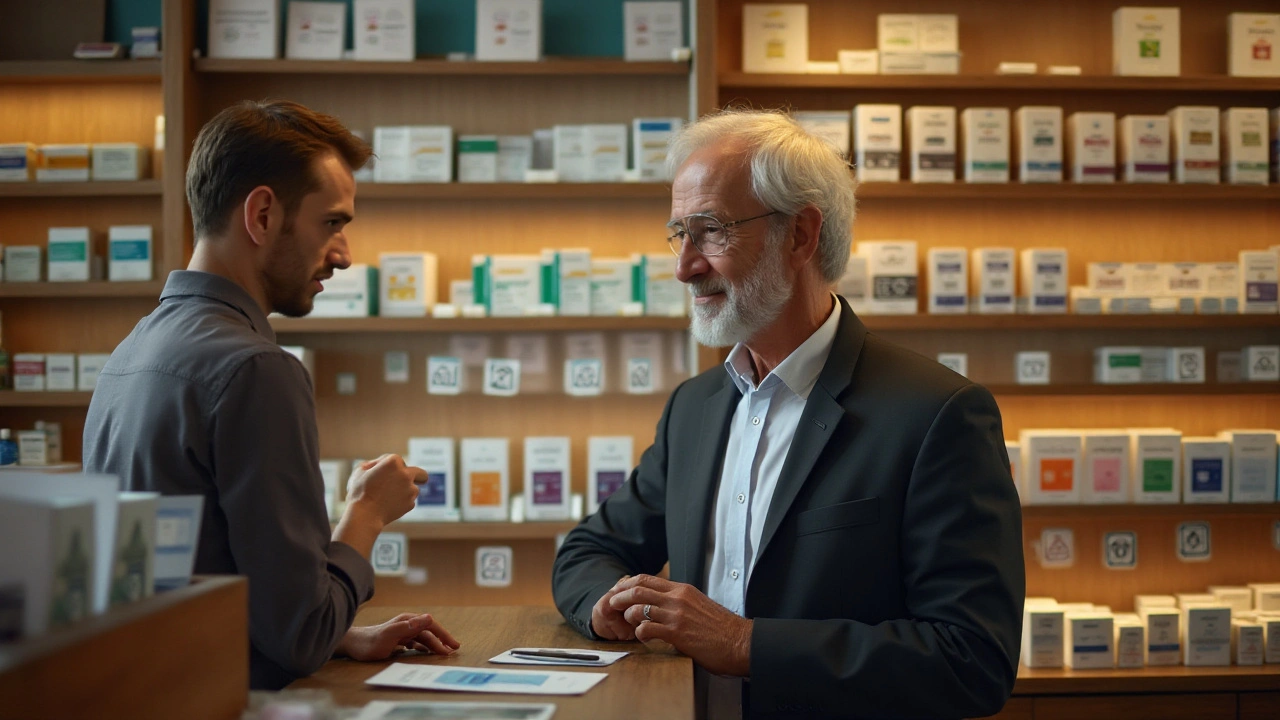Premature ejaculation treatment: practical options that work
About 1 in 3 men will deal with premature ejaculation (PE) at some point. If it’s happening to you, know this: there are straightforward steps you can try tonight and medical options that work well when you need them. You don’t have to just live with it.
Quick, practical techniques you can try tonight
Start-stop method: during sex or masturbation, stop stimulation when you feel close to climax. Wait 20–30 seconds, calm down, then start again. Repeat this cycle a few times. It trains you to notice the point of no return.
Squeeze technique: when you feel about to ejaculate, squeeze the head of the penis where the shaft meets the glans for 5–10 seconds until the urge reduces. You can do this yourself or with a partner. It lowers excitement enough to continue without ejaculating immediately.
Kegel exercises: strong pelvic floor muscles help you control ejaculation. To find the muscles, try stopping urine midstream. Contract those muscles for 3–5 seconds, relax for 5 seconds. Do 10 reps, three times a day. Over weeks you’ll notice better control.
Condoms and delay condoms: thicker condoms or those with a mild numbing layer reduce sensitivity and often add extra minutes. Simple, low-risk, and easy to try.
Medical options and when to see a doctor
Topical anesthetics: creams or sprays containing lidocaine or prilocaine applied to the glans 10–15 minutes before sex can reduce sensitivity. Wipe off excess to avoid numbing your partner. They’re effective for many men but try a small amount first to check for irritation.
Oral medications: Dapoxetine is a short-acting SSRI made specifically for PE in some countries; it’s taken on demand before sex. Other antidepressants like sertraline or paroxetine are used off-label and are usually taken daily—these can help but require a prescription and time to work. Talk with your doctor about side effects and interactions.
Psychosexual therapy: if anxiety, stress, or relationship issues play a role, sex therapy or cognitive-behavioral therapy helps a lot. Therapy teaches techniques to reduce performance pressure and improve communication with your partner.
Check for medical causes: sometimes PE links to prostatitis, thyroid problems, or certain meds. If you notice sudden change or other symptoms (pain, urinary issues, or low libido), see a clinician for testing.
Simple lifestyle steps that help: exercise regularly, cut back on heavy drinking, quit smoking, sleep more, and reduce performance anxiety with relaxation or breathing techniques.
If one approach doesn’t work, combine them. For example, use pelvic floor training plus condoms or a topical spray, or pair behavioral exercises with short-term medication under medical supervision. Talk openly with your partner and your doctor—saying it out loud is the first step toward fixing it.
Need more tailored advice? Book a visit with a urologist or sexual health specialist who can guide you on safe, effective options for your situation.

